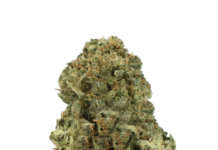Does CBD Help You Sleep? A Deep Dive Into the Research and Results
There’s nothing quite like staring at the ceiling at 3:17am, mentally replaying that awkward conversation from 2009 and wondering if you’ll ever sleep again. Whether it’s stress, too much screen time, or just the general chaos of modern life — getting a decent night’s kip is harder than ever.
But lately, there’s been a buzz around a natural alternative that doesn’t involve prescription meds, sleep apps, or those weird weighted eye masks: CBD for sleep.
So, does it actually work? And more importantly, is it worth trying?
Let’s break it down.
What Even Is CBD?
CBD — short for cannabidiol — is a naturally occurring compound found in hemp. It’s non-psychoactive (read: it won’t get you high), but it does interact with your body’s endocannabinoid system — a complex network that helps regulate things like mood, stress response, pain, and yes… sleep.
Unlike its rowdy cousin THC, CBD isn’t here to mess with your head. Instead, it works more subtly — nudging your internal systems back into balance and making it easier to relax, unwind, and drift off naturally.
So, Does CBD Help You Sleep?
Let’s get to the heart of it: does CBD help you sleep?
The answer? For many people — yes.
Here’s how it works:
- Reduces anxiety – One of the biggest barriers to sleep is stress. CBD has been shown in multiple studies to have anxiolytic (anti-anxiety) effects, helping calm a racing mind and making it easier to fall asleep.
- Improves sleep quality – CBD doesn’t knock you out like a sleeping pill. Instead, it supports deeper, more restorative sleep by helping your nervous system chill out.
- Supports REM cycles – Some research suggests CBD may reduce disruptions during REM sleep, the phase responsible for memory, recovery, and dreaming.
- Pain relief – If chronic pain or discomfort keeps you tossing and turning, CBD’s anti-inflammatory properties may help you rest easier.
While everyone’s experience varies, most users report falling asleep faster, waking up less during the night, and feeling more refreshed in the morning.
What Kind of CBD Is Best for Sleep?
There are loads of ways to take CBD — but not all of them are ideal before bed. Here’s what tends to work best when you’re using CBD for sleep:
- CBD Oil Drops: Taken under the tongue 30–60 minutes before bed, this is one of the fastest-acting and most reliable options.
- CBD Gummies or Capsules: Slower to kick in (they go through your digestive system) but great for sustained effects throughout the night.
- CBD Sleep Blends: Some products combine CBD with other sleep-friendly ingredients like melatonin, valerian root, or magnesium for a more targeted effect.
It’s usually a good idea to start with a low to moderate dose (around 20–30mg) and increase gradually if needed. With sleep, more isn’t always better — sometimes a gentle nudge is all your body needs.
Is There Any Science Behind It?
While long-term research is still evolving, several promising studies support the idea that CBD can help with sleep issues.
A large-scale case series published in The Permanente Journal in 2019 found that 66% of patients experienced better sleep after using CBD for just one month. Another study in Frontiers in Pharmacology found that CBD may help regulate sleep-wake cycles, especially in people with anxiety-related sleep disruption.
And anecdotally? The rave reviews speak volumes. From insomniacs to overthinkers, people across the UK are using CBD as a natural alternative to sleeping pills or booze.
Are There Any Side Effects?
CBD is generally well-tolerated. Some people may experience mild side effects such as:
- Drowsiness (which is the whole point here, really)
- Dry mouth
- Grogginess at high doses
- Digestive upset in rare cases
The key is quality and dosage. Stick with reputable brands, check lab results, and don’t go overboard. And as always, if you’re on medication or have underlying health conditions, check with a doctor first.
Final Thoughts: Should You Try CBD for Sleep?
If you’re stuck in a cycle of restless nights, groggy mornings, and increasingly desperate Google searches — it might be time to give CBD a shot.
It won’t knock you out cold or leave you in a fog. But it might just help your body and mind do what they’re supposed to do naturally: rest.
CBD won’t work for everyone, and it’s not an instant fix. But for many, it offers a gentle, effective way to wind down and reclaim the sleep that life has been rudely stealing away.
So go on — put down the phone, switch off the noise, and try something new. A drop, a gummy, or a can of CBD-infused calm might be exactly what your nights have been missing.
Sleep well.





